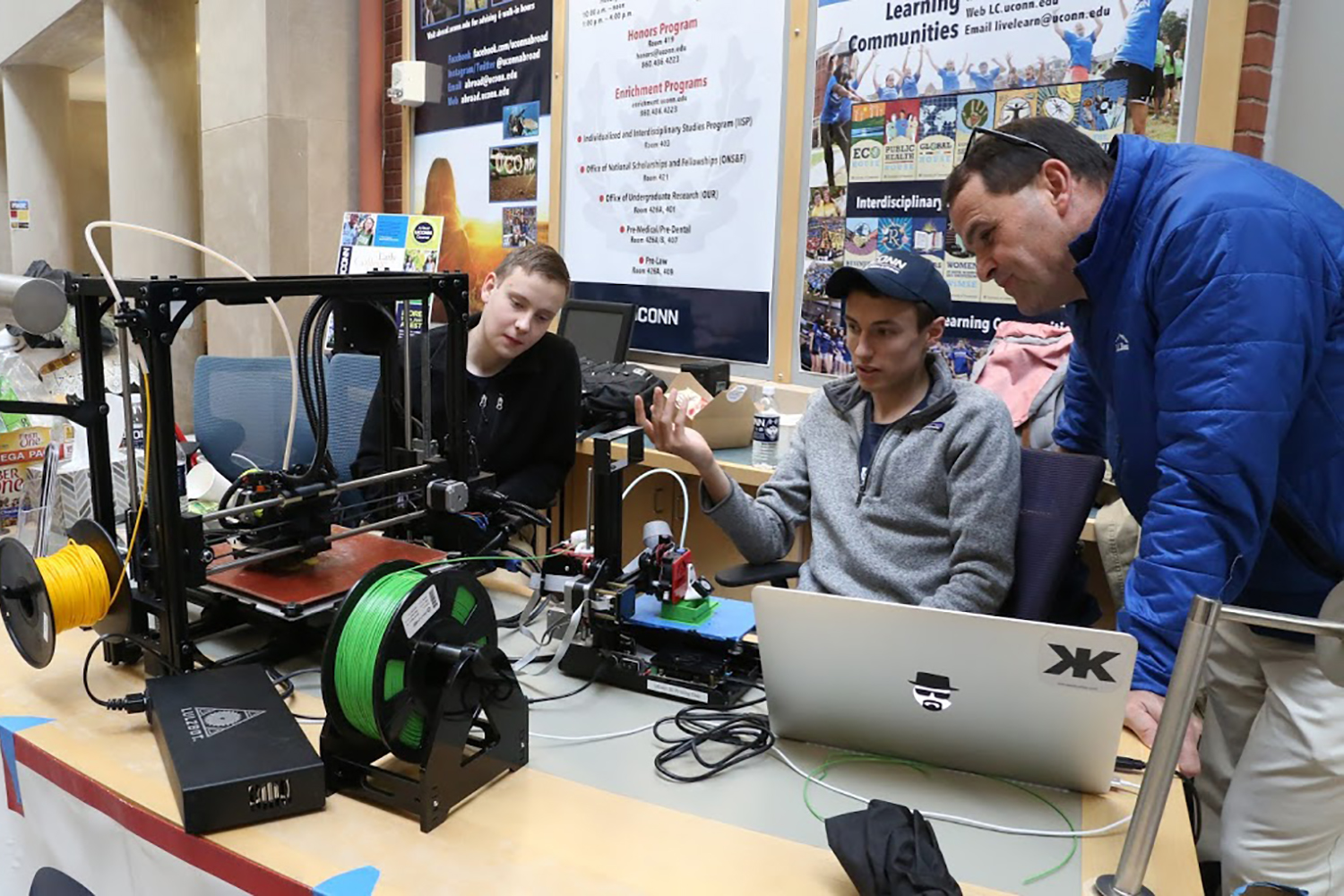The UConn Entrepreneurship and Innovation Society held its first hackathon, HackUConn 2016 Smart Cities, on April 1 and 2. Hackathons are an opportunity for designers, engineers, and other interested individuals to come together and innovate hardware and software solutions to real problems. These have become regular events at institutions known for their innovative nature and this event demonstrates UConn’s support for hackathons and their relevance to learning.
The hackathon equipped me with the skills and confidence to develop my own innovations to tackle the engineering challenges of the future. – Jhomar Fernandez Mayi – UConn ‘17
The event, supported by both the UConn Entrepreneurship and Innovation Consortium and the Connecticut Center for Entrepreneurship and Innovation, allowed over twenty students to innovate over twenty-four hours by developing solutions to real problems in the topic area of Smart Cities.
Smart Cities are an attempt to integrate multiple information and communication tech solutions in a secure fashion to manage a city’s assets, including transportation systems, power plants, waste management, law enforcement and other community services.
HackUConn brought together student participants with industry and academic mentors and judges, along with a variety of resources such as 3D printers and other prototyping materials to aid in the experience. Food and coffee was provided to students, which proved particularly beneficial to students who never left the building for the entirety of the twenty-four hour event. In the early morning hour, some rooms were occupied by teams sitting around a table silently working to develop their product, participants debating over design options, or even some hackers taking a quick nap near their hacking space.
Hack:UConn provided a great opportunity to realize how my formal education can be used in practical application. – Giancarlo Castillo, UConn ‘17

This event will serve as an example for future hackathons to contribute to growing entrepreneurial and innovative culture at The University of Connecticut. All students from every discipline and university are welcome to attend next time. Keep an eye open for HackUConn 2017 at hackuconn.org.
At the conclusion of the event, four teams presented the projects they had developed over the past twenty-four hours. One group presented an application to create an on-demand car taxi service similar to Uber, but with the option to Carpool in order to save money and protect the environment. A different team worked to develop a high altitude water collection system to generate electricity without the need for environmentally destructive dams. Another group built a functional traffic simulation program to further study traffic patterns during peak hours in order to implement methods of more balanced use of roads. The last team developed an application to notify nearby medical professionals in the case of an emergency in order to provide quicker emergency response. This could be particularity useful in cities where traffic can lengthen response time while medical professionals may be in the restaurant next door.



